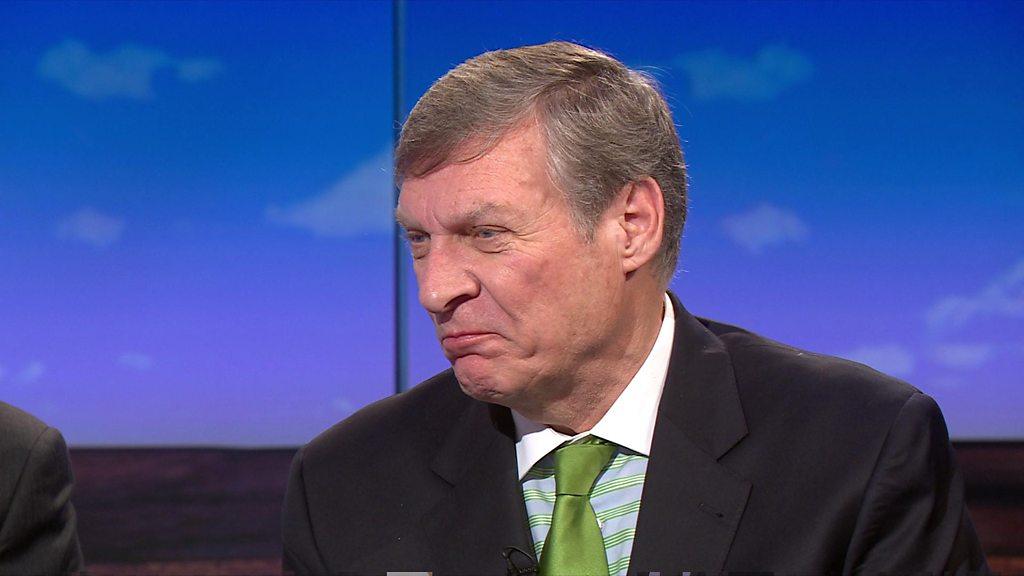Merkel meets Trump: A defining moment for US and Germany
- Published
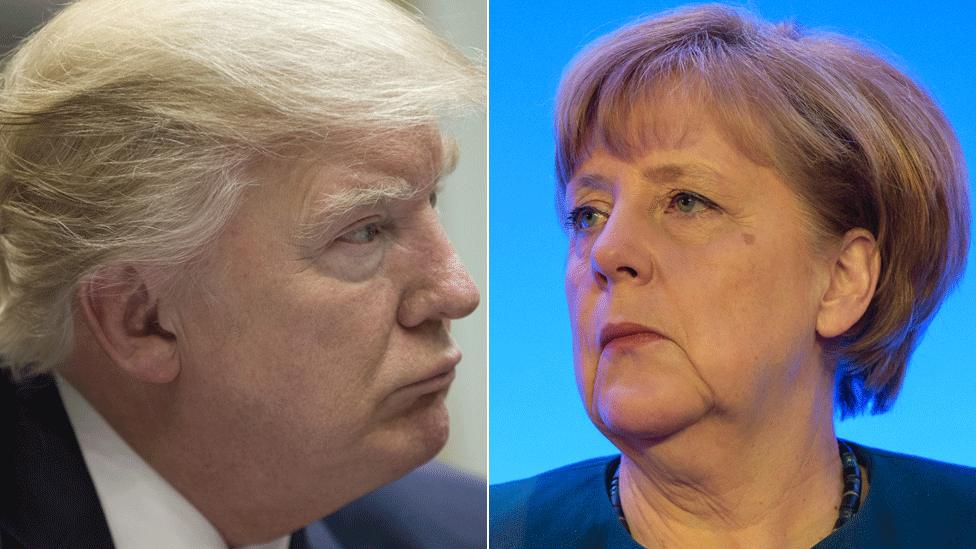
Will the president and the German chancellor find common ground?
The world's most powerful man is about to meet one of its most influential women.
A snowstorm forced the cancellation of German Chancellor Angela Merkel's planned visit to Washington on Tuesday. The forecast for Friday's meeting is much brighter - meteorologically, at least.
But with the exception of their ability to effect profound change upon the western world, President Donald Trump and Angela Merkel have little in common.
He is flamboyant, impetuous and prone to rhetoric which sets alarm bells ringing in Berlin. She is reserved, pragmatic and lingers over decisions.
He lambasted her open door refugee policy. She opposed his travel ban.
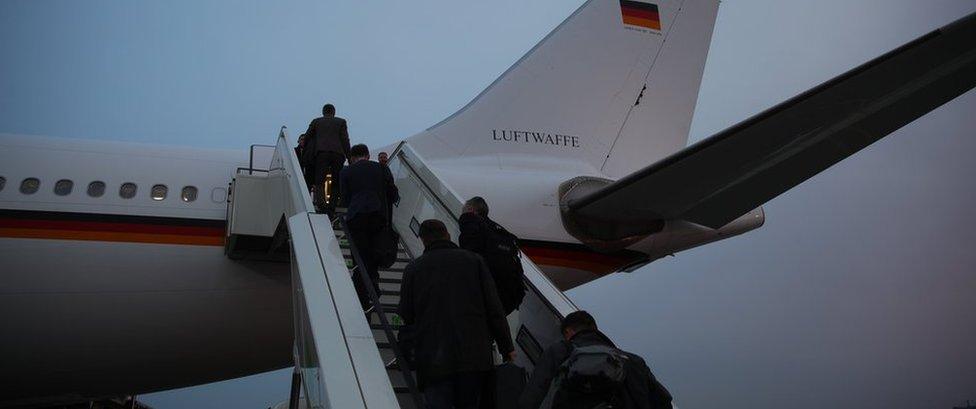
Up in the air: the chancellor's first flight failed to get off the ground because of a snowstorm in the US
But the relationship they strike is likely to have lasting consequences for the future of Europe - and beyond.
Down to business
Mrs Merkel, who is said to have been studying Mr Trump's speeches and even an old interview with Playboy magazine, external, appears to have concluded that the way to the president's heart is through business.
She is taking the chief executives of BMW and Siemens and the manufacturer Schaeffer along with her.
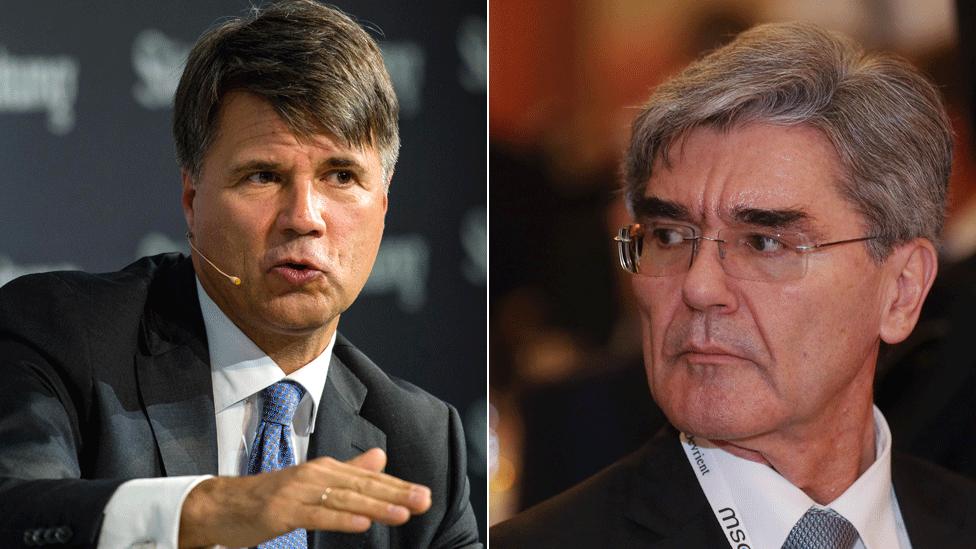
BMW's Harald Krueger (L) and Joe Kaeser, CEO of Siemens, are part of the chancellor's White House delegation
Together they are expected to reinforce the mutual benefits of the transatlantic economic relationship. They are expected to emphasise that 810,000 people are directly employed by German companies in the US.
The chancellor and chief executives will need to talk tough. President Trump has already hinted at higher import taxes for countries such as Germany that have a trade surplus over America.

What they said about each other:
"I think she made one very catastrophic mistake and that was taking all of these illegals. Nobody even knows where they come from. So I think she made a catastrophic mistake, very bad mistake," Donald Trump, 16 January 2017, The Times
"I told you @Time Magazine would never pick me as person of the year despite being the big favourite. They picked person who is ruining Germany," Donald Trump tweet, 9 December 2015
"Germany and America are bound by their values: democracy, freedom, the respect for the law and the dignity of human beings, independent of their origin, skin colour, religion, gender, sexual orientation or political position. On the basis of these values I offer the future president of the United States, Donald Trump, close co-operation," Angela Merkel, 9 November 2016
Trump meets Merkel: The biggest difference between US and Germany
More on Trump and Merkel:

For talks that will last all of two hours there is a lot on the agenda.
Nato, the Middle East and international terror, for a start. Germany's defence spending is currently 1.23% of GDP, but Mrs Merkel is expected to reassure President Trump of its existing commitment to increase that gradually to Nato's 2% target.
And there's a lot to disagree on.
On climate change, German will insist on the importance of cutting greenhouse gas emissions, while Mr Trump's support for the Paris climate deal is unclear.
Germany is also seeking a unified response to Russia's actions in eastern Ukraine and a commitment to sanctions if the terms of the Minsk ceasefire agreement are not met.
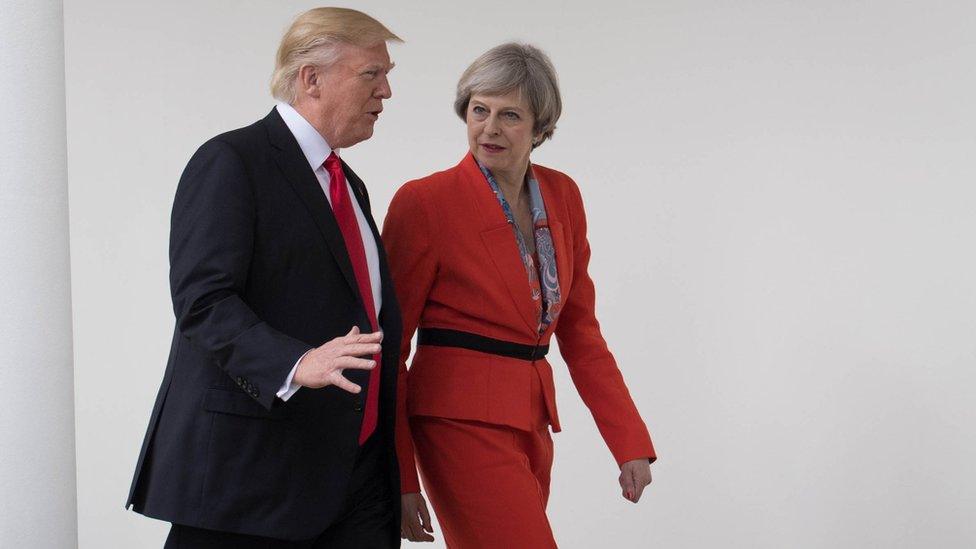
The first European leader to meet President Trump was UK Prime Minister Theresa May
Expectations in Berlin are not high.
It is unlikely that the Merkel-Trump pairing will replicate the warm and trusting political alliance between the chancellor and President Obama, which survived the revelation that the Americans had listened in to Mrs Merkel's phone calls.
It is also election year for the chancellor.
Merkel's 'instruction mode'
Donald Trump is deeply unpopular among Germans. A recent poll for the national broadcaster found that trust in the US under his administration had fallen to a new low and was on a par with Vladimir Putin's Russia.
Angela Merkel needs to walk a diplomatic tightrope. She has to build a working relationship with Mr Trump without appearing to sacrifice her own values or disappoint those keen to cast her as the West's last defender of those democratic ideals.
She has already reminded Mr Trump of his obligation to common values and explained the Geneva Conventions to him.
Mrs Merkel has made it clear that she is still in instruction mode, stating her intention to explain to Mr Trump "that for us nationality and membership of the EU are two sides of the same coin".
Theresa May was the first EU leader to meet with America's new president, who supports the UK's decision to leave the union. Mrs Merkel will be keen to emphasise the importance she attaches to holding the fragile European project together.
This may be billed as a getting-to-know-you visit, and as Angela Merkel put it: "It's better to talk with than about someone."
But governments around the world will be watching closely for clues as to how America's relationship with Germany and with Europe is likely to evolve. And what that means for the wider world.
- Published16 January 2017
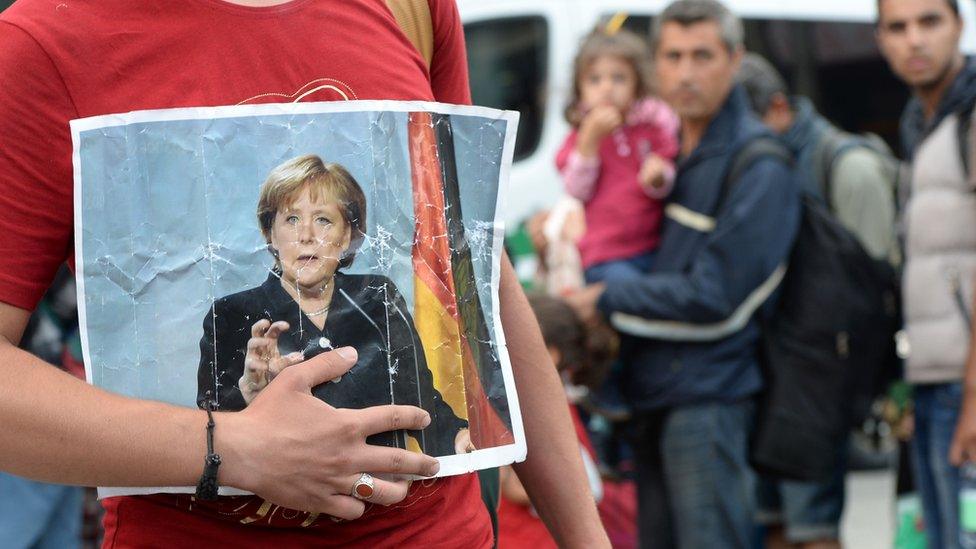
- Published3 February 2017
